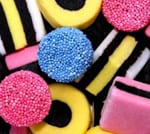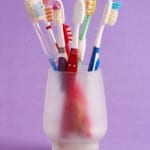 If you’re desperate for sparkly pearly whites this summer, it’s a good idea to learn more about how your diet impacts your oral health. Often, the foods we eat can make a real difference to oral health as well as the look of the teeth, so here are 6 sugary snacks to avoid in order to enjoy a healthy, bright smile:
If you’re desperate for sparkly pearly whites this summer, it’s a good idea to learn more about how your diet impacts your oral health. Often, the foods we eat can make a real difference to oral health as well as the look of the teeth, so here are 6 sugary snacks to avoid in order to enjoy a healthy, bright smile:
- Fruit juice: fruit juice is often marketed as a healthy alternative to pop, but it often contains a huge amount of sugar. Juices are also acidic, which contributes to acid wear of the enamel. If you do enjoy fruit juice, try to stick to drinking it at mealtimes only and dilute it with water. Take care to read labels on shop-bought products and watch out for added sugars.
- Sweets: many of us admit to having a sweet tooth and a bag of sweets is a popular treat or afternoon pick me up. Sweets may taste delicious, but they are bad news for your teeth. They are laden with sugar and they are also usually acidic. If you are eating sweets, eat them straight after a meal and drink a glass of water or milk afterwards. Healthier alternatives to sweets include natural yoghurt and fresh fruit.
- Smoothies: smoothies have become all the rage as part of a healthy eating revolution. However, if you check the nutrition labels of smoothies on offer in cafes and supermarkets, you may be shocked at the sugar content. Smoothies are essentially a healthy option if you make them yourself, as you can control how much sugar is added. However, if you buy ready-made bottles or cartons, you may find that your drink is not as healthy as you hoped.
- Yoghurts: yoghurts can be really beneficial for the teeth because they are rich in calcium. However, you need to be careful when choosing which yoghurts to buy. Sweetened, flavoured yoghurts often contain a lot of sugar and this includes low-fat versions. Try to go for natural yoghurt and add natural sugars such as honey or berries if you would prefer something a little more adventurous.
- Chocolate: many people admit to reaching for a chocolate bar when their energy levels drop mid-afternoon, but snacking on chocolate is not just harmful for your teeth. It also provides a quick release of energy that will almost certainly cause you to feel tired again shortly afterwards. Sugar-free cereal bars and wholemeal crackers are healthier options, which will release energy over a longer period of time.










